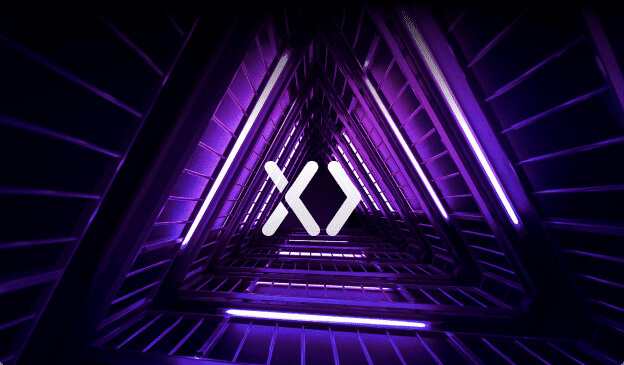.webp)

Written by:
Expresia
Here’s why you need a Digital Experience Platform
Find out what is a DXP and why you need it
What is a DXP (digital experience platform)?
What’s a DXP? We’re glad you asked. A Digital Experience Platform (DXP) is a software application that makes it possible to create, manage, deliver, and optimize digital experiences across a wide range of touchpoints and channels. It provides businesses with comprehensive technology to encourage deep-rooted connections. Forrester defines a DXP as “a platform that provides the architectural foundation and modular services for developers to create and optimize these digital journeys at scale”.
A digital experience platform takes digital experiences several steps further to help you create an optimal customer experience by virtue of adapting content for multiple devices and channels throughout the entire custom journey. While in the backend, technical and content-driven users can work more efficiently within a single, integrated system.
Huh? In short, a DXP allows you to create, manage and optimize digital assets across multiple channels to create a seamless digital experience for your customers.
DXP components
When looking for the option that best suits your needs there is a wide range of technologies and components included in the digital experience platform itself, but there are a few that common across most DXPs and these are their components:
Content management:
Before diving into the content management component included in a DXP, you may first need to understand what a CMS is.
A Content Management System (CMS) is a software application that enables you or your business to organize, manage, and create content with minimal IT involvement needed in a friendly, easy-to-use interface.
Made from two cores, a content management application (CMA) and a content delivery application (CDA), a CMS allows you to easily manage the digital content of your site without the need to learn how to write a single code line.
Content is king, so it's expected that it's at the core of a DXP. Most DXPs have a Content Management System within the platform that contain all of its capabilities. The foundation of every outstanding DXP is a strong CMS, which drives the organization's website and streamlines the website editing process. A DXP plays the role of a repository and distributes content across multiple touchpoints.
With the help of Expresia's Content Playlists, both your developers and non-technical contributors may achieve outstanding outcomes quickly. The look and feel of content can be readily customized by marketers, content managers, and content creators without the assistance of developers because of content playlists. Furthermore, it makes it easier to arrange content into understandable and manageable groups, quickly and consistently.
Asset management:
A DXP evolves into a repository of your digital content with the scalability only a cloud service can provide. You're covered whether you include audio, video, images, or any other file you can think of.
With Expresia you can handle all of your digital assets and reuse them throughout your whole digital ecosystem. Drag and drop media files into the Media Explorer to upload and update them, as well as to add metadata for better SEO.
Commerce:
DXPs provide companies with eCommerce functionalities, so they can focus on doing business, while the platform handles the backend, payments, orders and all related commerce logistics.
By retrieving and sharing basic transactional capabilities via an API, DXPs are able to react to market needs based on understanding the context of the consumers. In order to grow and connect with industry marketing specialists, DXPs have strengthened their eCommerce systems.
Expresia’s extensible API-driven digital e-commerce framework provides wide management of products and their variants, promotions, inventories, and logistical interfaces. It was created to meet the potential digital needs that your company might have.
Insights & Analytics:
The content itself, as important as it is, is not enough. That’s why it is essential for your company to collect and comprehend the data that passes through your DXP and any other platforms that your brand interacts with. With analytics, you are able to create the most accurate picture you can of your clients. DXPs give you a comprehensive understanding of how business decisions are made, enabling you to take into account all the circumstances that can result in important data. This is where the value of a DXP lies.
By offering complete visibility and useful data to inform your decisions, Expresia is designed to work seamlessly with the rest of your technology and marketing stacks.
Personalization:
Personalization is also a related component of DXPs. Knowing that a Digital Experience Platform is capable of storing and evaluating behavioral data, this further explains how a DXP is capable of creating personalized, user-friendly digital experiences for each visitor based on their preferences, previous interactions and navigation record.
With our DXP, Expresia, you'll be able to figure out a users' behavior, get a 360º view of their customer journey, and from there, personalize their experiences while taking care of every step along the way.
APIs & integrations:
APIs are the feature that will allow you to do it all with an open architecture. Developers can use APIs to incorporate pre-existing functionality rather than creating new apps from scratch; this is done by connecting individual software solutions together through an interaction model, which guarantees that users are continually aware of their surroundings and know how to navigate from one location to another to gather information or complete activities. All this while cutting expenses by shortening times and delivering top-notch, personalized digital experiences.
Expresia has extensive, flexible and elegant RESTful APIs at the core of its architecture, making the integration process easier and the possibilities limitless. Spend less time in development and adopt a methodology that makes it simple to integrate with various third-party APIs.
.webp)
What are the benefits of a DXP?
If your current system is cumbersome and it’s difficult to update content across platforms or you’re looking to create a more personalized and seamless user experience across your digital assets, then it’s time to look into a digital experience platform. Here are a few of the advantages to a DXP:
Integrations
While plug-ins for your CMS are great, too many can cause your site to slow down or break. DXPs are built for all kinds of products, from elaborate marketing frameworks, to complex products, and even digital ecosystems. DXPs offer flexible architecture that allows for a more seamless and smooth integration of various channels to create a true omnichannel experience. With a DXP, you also have the possibility of integrating the customer-facing experience with other business process systems such as the ERP, Logistics, WMS, and so on. With an elegant RESTful, auto-documented API at its core, Expresia provides an innovative framework with robust, extensible integration capabilities, and a consistent syntax for more than 180 objects.
Scalability
A DXP allows you to add multiple instances to your platform without involving your IT department or sacrificing on-site speed and performance. For example, it offers the scalability to support multi-sites or multiple languages within a site, as well as the scalability of content assets such as generating one image into multiple sizes across the platform.
Built to scale, Expresia grows with you, from small websites to large ecosystems, and no need to worry about re-platforming. With pricing as elastic and reliable as our cloud infrastructure, you only pay for what you use.
Personalization and Customization
A DXP is designed to be fully customizable to meet your digital workflow needs. It can also integrate with other software, which allows you to gather customer insights at every touchpoint and then use that data to personalize the customer experience.
Expresia's DXP offers you a dynamic, personalized experience for all site visitors with a cookie-less, AI-enabled approach. With Expresia you are able to not only personalize but create A/B/Z experiments to optimize conversions and engagement.
Analytics
When you have everything running from one centralized hub, you are able to gather insights from all of your consumer touchpoints in one location. This connectivity means you can obtain deeper insights with customer data gathered from multiple sources and then leverage this data to personalize content, define and customize user journeys and fine-tune marketing executions.
If you have a comprehensive marketing strategy that requires the management of personalized user experiences across multiple channels, you will significantly benefit from a digital experience platform. Contact us to learn more about how we can create a customized DXP to optimize your content management processes and improve your customers’ digital experience.
Types of DXP: Open vs closed architecture
The vendor options for DXPs are as varied as their features are. But when considering a Digital Experience Platform you must take into consideration there are two kinds of them. There are open DXPs as well as closed DXPs.
First of all, an open DXP mixes into one place third-party features through API integrations, giving the system the flexibility and scalability a user can only dream of. Open DXPs allow personalization and the synthesis of multiple vendors into one, without the need to sacrifice previously integrated products that your business has already tested and fit for you and your team's workflow. An open DXP is the right choice for you if you aim for flexibility.
On the other hand, a closed DXP is a full-stack, self-contained platform with all the features and components included but built by a unique provider. Instead of calling third-party components through APIs, all of them are developed and supported by the DXP provider as a whole. While the integration possibilities are not fully closed, it is designed to work best with the ecosystem as is.
A choice like this one is strictly related to your business needs and the projection you have for the future in terms of flexibility and scalability. It also depends on your business reach, the existing departments, and if they're able to support wider implementations. The wheel has been invented already, there's no need to build it from scratch and that's the point of a DXP, open or closed, both will help you in your digital transformation path.
Why do I need a DXP?
Many companies use a straightforward CMS that meets their business needs. But as these businesses grow, they often find their CMS can’t keep up and upgrading the system still doesn’t address their needs. From lacking the ability to optimize, limited commerce capabilities, and compatibility issues that prevent the CMS from connecting with other parts of the business, there are many areas where a CMS can fall short. A digital experience platform can deliver CMS, commerce and data management functionality, making it the perfect solution for a number of business needs.
Take into consideration the goals you’ve set for your business and how your technology stack is capable of improving those, making the process easier and getting you closer to them.
At this point in the game, the importance of the processes is emphasized over mere business exposure; the full customer experience is what matters. Creating a connection with your customers is now more important than ever. In order to achieve a genuine, deep user relation, a personalized experience is going to be your best ally. By building a strong message and delivering it across multiple channels you are already halfway up the road. But how? A DXP is the answer you’ve been waiting for.
How to know if you need a DXP?
Not sure if a DXP is right for your business? Here are a few examples of when you would need a DXP:
- Undergoing a major digital transformation, where interoperability, data integrity and data flows are paramount.
- Executing an omnichannel digital experience that is truly seamless.
- Preparing to automate several customer-facing processes, such as marketing.
- Looking to support a new platform business model where the business IS the product, in which case a DXP could provide robust functionality without the cost of custom development.

How is a DXP different from a CMS?
Whether you’re building a website, redesigning an existing one or undergoing a complete digital transformation, you will need to determine which type of platform will best suit your needs. Here are the main differences between a CMS and a DXP:
Content Management System
A content management system is software that allows you to create and manage text and images for desktop and mobile websites. Some of the most popular are WordPress, SquareSpace, Drupal, Joomla, Shopify, Wix, Hubspot and Blogger. A CMS consists of two layers: content and code. Before the CMS came along, you had to build and update web pages using a coding language like HTML, Javascript or CSS. With a CMS, you don’t need to be a developer to produce and update content on your website.
A Content Management System (CMS) is a software application that enables you or your business to organize, manage, and create content with minimal IT involvement needed in a friendly, easy-to-use interface. With a CMS you don't have to write code from scratch in order to manage the digital content of your website.
Content management systems are commonplace but they have their limitations. For a better understanding of the differences between a DXP and a CMS read our entry DXP vs CMS: What’s the difference? and find out which one best suits your needs.
How is a DXP different from a WEM?
From CMS, to WEM, to DXP, technologies have evolved over the years. We've gone into the differences between a DXP and a CMS, but what is a WEM and what differentiates it from a Digital Experience Platform?
Content distribution and administration are separated by a web experience management (WEM) platform. Workflow, reporting, organizing, and user management capabilities, for example, are the building blocks that a CMS provides to manage collections of information. WEM, on the other side, also builds and creates web-based experiences, such as publishing content to web browsers and mobile applications. A WEM platform manages material in a shared repository similarly to a CMS. Additionally, it distinguishes between how a business organizes and controls material and how it distributes that content on websites.
Digital experiences have changed, so it is expected the tools and the technologies aren’t the exception.
Understanding the customer and putting them first throughout the customer journey makes a DXP different from CMSs and WEM systems. A profound understanding of the user and the building of a meaningful relationship is living proof that a DXP can deliver a multichannel experience, getting to customers at each touchpoint.
Transitions from one system to another impact specifically the way the content is delivered and administered. With a DXP you get a user-centric, omnichannel approach.
When to use a DXP
The timing, budget and needs are different from one company to another, so how do you know if a DXP is right for your unique situation and needs? These cases might resonate with you:
Plan and execute extensive business strategies
In a digital transformation path, a DXP is a true game-changer, especially if you aim to achieve a comprehensive strategy. Although it might not always be a requirement for the execution of a digital blueprint, it should be considered sooner rather than later by companies with a long-term multichannel presence.
When building strategies, data is key and DXPs collect data and serve it for you as a bridge between the silos of current data and the context of target audiences, product testing, and experience development. Due to the ability to make well-informed decisions based on facts rather than conjecture, data is the thing that organizations strive to acquire.
Personalized customer experience
Personalization without the right technology stack is almost impossible to achieve. As difficult as it is right now, poor user experience implementation only makes it harder. If this is your case, then a data gathering and digital experience tool in one single platform is the DXP feature that will catch your attention.
Valuable content serves as the foundation for highly tailored user experiences by building emotional connections between brands and their audience. The DXPs fulfill the function of content managers, delivering on numerous platforms, extending its reach, gathering insights, and spreading the brand presence throughout the web. Creating content is as crucial as assessing its success across many channels.
Effective campaign launch and administration
As challenging as they are, DXPs make the campaign administration process smoother and more effective. Without compromising performance, Digital Experience Platforms allow you to update, edit and personalize the user experience and customer journey in shorter times, while it provides you the data you need to achieve your goals along the way.
A DXP allows you to create, manage and optimize digital assets across multiple channels to create a seamless digital experience for your customers.
5 reasons to start using Expresia as your DXP
- Time-saving technology
It is well-known that time is money. DXPs merge together all the tools you need into one robust, out-of-the-box, user-friendly platform, so you can access them at ease, whenever you need them, right in your browser.
In one single place, all of your content, assets and development tools coexist, with top-notch technology that plays well with each other. With CMSs, or WEM systems the implementation system is always harder, and it is required to be compatible with this kind of technology. DXPs delete that gap by being easily integrated with all classes of libraries you can think of as well as expanding the possibilities of your business.
The learning curve is easier and faster with a DXP. Your teams only have to learn how to use one tool, and that's it. By using Expresia, you no longer have to manage a segregated set of technologies, all of your content and digital experiences are housed within the Expresia ecosystem. With other systems that rely on add-ons, shifting to one platform from another becomes a nightmare and hinders daily workflows. DXPs make day-to-day activities an easy, smooth experience. Getting used to a tool and learning how to use it has never been more effortless.
With Expresia DXP, all the members of your team are speaking the same language, your time to market is reduced from years to months, your concerns are easily solved and the tasks are accomplished quicker.
- Be the owner of your data
The quantity of data that businesses have today about their clients, customers, suppliers, customers, team members, and other parties is astounding. A business will be more effective if this knowledge is appropriately applied to understand the market and the customers you aim to reach. A DXP is capable of guaranteeing data governance, which results in your data being trustworthy, well-documented, accessible, safe, compliant, and private within your company.
Typically, when using a CMS platform, you become stuck using the outdated technology due to not fully owning your data. This makes it extremely difficult to pivot, replatform or scale your digital business when you need to, and you will need to. On the other hand, if you're lucky enough to still be the owner, the integration with other platforms becomes a nightmare, so you become limited to the capabilities that the existing CMS has to offer and are unable to compete and meet your customers' ever evolving expectations.
From the very first moment, the data gathered in a DXP can be connected to all platforms and integrations, giving you full control and making your business the true owner. No limitations. Even if you stop using your DXP, this data can be easily transferred to new tools. This is the real meaning of full control.
Usually, platforms retain their customers by keeping their data. Instead, Expresia offers you complete ownership and control over your analytics and data, allowing you to connect to whatever platform you prefer to track and add this data, which equals better business decisions.
How does a DXP give you control over your data?
– A DXP will gather, collect and showcase your data so you're able to explore, collect and apply it to related business decisions so you make sure you're making the right one.
– By using data validation, data cleaning, and data enrichment, you make sure the data your DXP is collecting is of the highest quality and answers your business needs.
– A DXP continuously manages and audits your data to maintain control over it. You can access it whenever you want, export it and apply it to any field you desire.
– When playing with third parties, security is key and Digital Experience Platforms (DXPs) provide you with the properties and gadgets needed to guarantee the security of your sites.
- Pay-for-what-you-use model
DXPs are configured to change the overall workflows and end up being the best inversion for your company. Digital transformation is usually too expensive, but DXPs make the process easier since you only pay for what you use.
A DXP takes responsibility for the support and the maintenance of the technology, which means you won't need a support team of your own and you'll be saving the costs this implies. With other tools, you'd need to build complex functionalities from scratch, which ends up being much more expensive and it would take longer, which also means more money.
Your business grows as much as your customers and the usage of it does, but the common rule is you pay for the hosting services or the number of servers required, which means from the very beginning your company is incurring losses.
With a DXP this will no longer represent a problem. With a pay-for-what-you-use model, Expresia DXP provides you with risk-free pricing. Your business can start for free and go live at $0 with up to 100,000 API requests/month and start paying once they go over that limit. With a DXP you pay for a toolbox of top-notch technologies at the tip of your fingers, giving you all you need under single pricing. Did you ever imagine it could be this easy?
- Scalability
A Digital Experience Platform enables its clients to scale up and down as needed by employing cloud computing.
Whenever your sites grow, you can have peace of mind knowing a DXP will grow along with you. Extra functionalities are not a problem with the ease of the APIs integrations. With a DXP you can incorporate as many features and capabilities as you want on a site and easily remove them without losing functionalities within.
As mentioned before, scalability also applies to the pricing, you won't pay for things you don't use so whether you're a start-up or an enterprise, a DXP fits your needs.
Expresia offers you 100% flexibility and contains full access for developers to fully customize. With our DXP you can scale from a single site or instance to complex enterprise workflows or ecosystems.
- Top-level personalization
With web 3.0 just around the corner, users every day are more focused on looking at platforms and workflows that provide them with tailored recommendations and reduce the navigation time invested into reaching what they're looking for. A DXP provides you with the technology needed for your business to classify the content and deliver it to your users according to their preferences and needs based on the navigation route and previous digital decisions. Unlike CMSs, DXPs make your life easier and allow you to achieve a customer-centric approach with total flexibility.
From a marketing view, teams have, at their reach, a tool that predicts customer behavior and gives them a more comprehensive view of audiences and their possible next decisions throughout the whole customer journey. This translates into a more effective, personalized customer journey. Do you wonder how to create the perfect eCommerce customer journey? Read our entry and learn how to get to your users effectively at multiple touchpoints.
True personalization means flexibility for you to use site data in every decision of your business and include it in the customer journey.
How does a DXP help your business?
Touchpoints management: With a DXP you'll be able to reach wider audiences by increasing the number of channels and touchpoints you have the capacity to take care of. This translates into extensive coverage of the users and the digital places they frequent.
Omnichannel approach: With a DXP you won't have to redo your job every time you want to reach your customers at a different content-related touchpoint. A DXP delivers personalized content across all channels you can imagine, while you take care of capturing the heart of your business into the right messaging.
Control your brand message: Make sure the message you aim to deliver is getting to the right audiences by administering each channel and personalizing the content for every user.
Personalization: According to previous user behavior, you can predict customers' preferences, and deliver content that matches their needs and the information they're looking for, ensuring you are putting forth the best customer experience possible.
Reduce time to market: Digital transformation requires the ability to pivot effortlessly while responding to shifting circumstances. A sophisticated and reliable technology is needed to ensure smooth and efficient content and product releases, to take advantage of the moment when the moment is happening.
Prepare for the future: Future-proofed assets are assets that can adapt, use new technologies, and interact with audiences as digital innovation grows or as new technologies are developed. A DXP helps you to be prepared for any changes in the future and make sure your money is going toward scalable, sustainable solutions.
Relevant data: Compile and comprehend the data that passes through your DXP and every channel that your brand interacts with. By using analytics, create the most accurate picture you can of your clients.
Why is Expresia the best option for a Digital Experience Platform?
Brands can develop digital assets that are future-proof thanks to Expresia, an all-in-one SaaS Digital Experience Platform (DXP). To provide top-notch, impactful experiences, marketers, developers, agencies, and content creators optimize everyday procedures in a single, collaborative hub. The top features of Expresia are all you need to deal with digital transformation in a highly competitive environment.
Expresia offers complete visibility and actionable data to support your decisions, making it compatible with the rest of your IT and marketing stacks. Try implementing data governance in its truest form to have complete control over your own information. For businesses aiming to develop, build, and lead in a digital-first future, Expresia is the best platform.
With the support of Expresia's Content Playlists, both your developers and non-technical contributors can achieve outstanding, quick results. The content design may be readily customized by marketers, content managers, and content creators without the assistance of developers thanks to content playlists. Additionally, it makes it easier to arrange content into understandable and manageable categories, which translates into more efficient day-to-day workflows.
Currently, companies use their DXPs for customer retention, marketing, self-service, and trademark protection. That's why it is essential for you to make sure the DXP of your choice is capable of expanding itself and easily connected to third-party services. Expresia’s extensive and elegant RESTful APIs are the core of the DXP architecture and one of its most powerful features. Integration has never been easier, more efficient and with such a fast and immediate “time to first value.”
Our extensible API-driven digital eCommerce system, built for flexibility and efficiency, provides full management of items and their variations, promotions, inventories, and logistical interfaces. It was created to meet the potential digital demands of the landscape and of your company.
Join our slack channel to find out more about our latest features and updates or get in touch with us to find out more about Expresia, and we'll help you choose the best digital solution for your organization's particular needs.
Featured news
Grow your business today

Book a demo
In as little as 30 minutes, discover how to future-proof your business.
.jpg)






